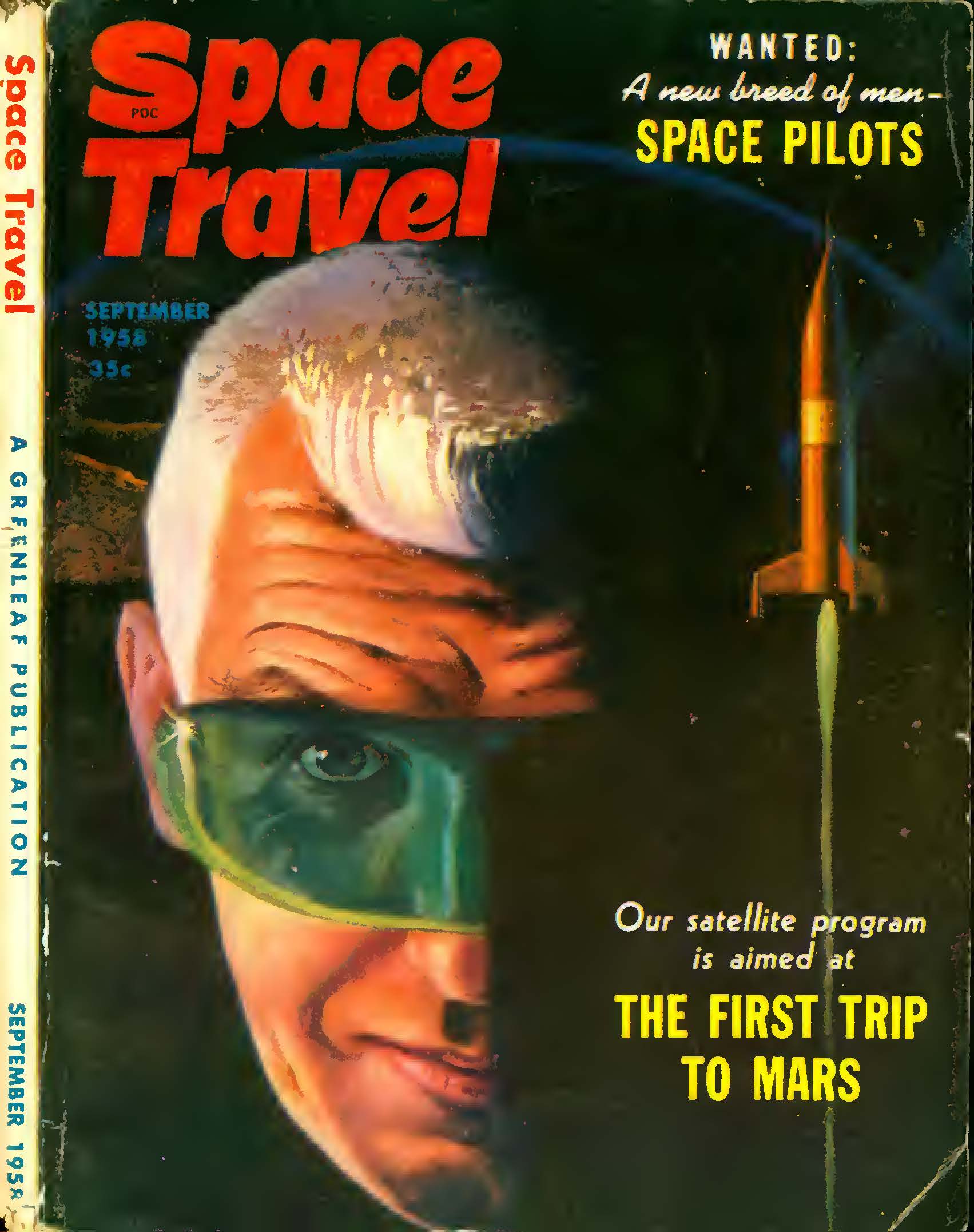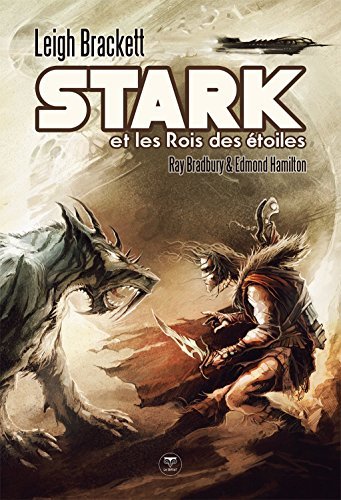

Books in series

The Star Kings
1949

Imaginative Tales, March 1957
1957

The Star Hunter & The Alien
2012

Space Travel, September 1958
1958

Return to the Stars
1969

Stark et les rois des étoiles (e-Bélial')
2014
Authors
Raymond Fisher Jones (November 15, 1915, Salt Lake City, Utah - January 24, 1994, Sandy, Salt Lake County, Utah) was an American science fiction author. He is best known for his 1952 novel, This Island Earth, which was adapted into the 1955 film This Island Earth and for the short story "The Children's Room", which was adapted for television as Episode Two of the ABC network show Tales of Tomorrow, first aired on February 29, 1952. Jones' career was at its peak during the 1940s, 1950s, and 1960s. His stories were published mainly in magazines such as Thrilling Wonder Stories, Astounding Stories, and Galaxy. His short story Noise Level is known as one of his best works. His short story "The Alien Machine", first published in the June, 1949 Thrilling Wonder Stories, was later expanded into the novel This Island Earth, along with two other short stories, "The Shroud of Secrecy", and "The Greater Conflict", known as The Peace Engineers Trilogy, featuring the character Cal Meacham. Jones also wrote the story upon which the episode "The Children's Room" was based for the television program Tales of Tomorrow in 1952.

Leigh Brackett was born on December 7, 1915 in Los Angeles, and raised near Santa Monica. Having spent her youth as an athletic tom-boy - playing volleyball and reading stories by Edgar Rice Burroughs and H Rider Haggard - she began writing fantastic adventures of her own. Several of these early efforts were read by Henry Kuttner, who critiqued her stories and introduced her to the SF personalities then living in California, including Robert Heinlein, Julius Schwartz, Jack Williamson, Edmond Hamilton - and another aspiring writer, Ray Bradbury. In 1944, based on the hard-boiled dialogue in her first novel, No Good From a Corpse, producer/director Howard Hawks hired Brackett to collaborate with William Faulkner on the screenplay of Raymond Chandler's The Big Sleep. Brackett maintained an on-again/off-again relationship with Hollywood for the remainder of her life. Between writing screenplays for such films as Rio Bravo, El Dorado, Hatari!, and The Long Goodbye, she produced novels such as the classic The Long Tomorrow (1955) and the Spur Award-winning Western, Follow the Free Wind (1963). Brackett married Edmond Hamilton on New Year's Eve in 1946, and the couple maintained homes in the high-desert of California and the rural farmland of Kinsman, Ohio. Just weeks before her death on March 17, 1978, she turned in the first draft screenplay for The Empire Strikes Back and the film was posthumously dedicated to her.


Ray Douglas Bradbury, American novelist, short story writer, essayist, playwright, screenwriter and poet, was born August 22, 1920 in Waukegan, Illinois. He graduated from a Los Angeles high school in 1938. Although his formal education ended there, he became a "student of life," selling newspapers on L.A. street corners from 1938 to 1942, spending his nights in the public library and his days at the typewriter. He became a full-time writer in 1943, and contributed numerous short stories to periodicals before publishing a collection of them, Dark Carnival, in 1947. His reputation as a writer of courage and vision was established with the publication of The Martian Chronicles in 1950, which describes the first attempts of Earth people to conquer and colonize Mars, and the unintended consequences. Next came The Illustrated Man and then, in 1953, Fahrenheit 451, which many consider to be Bradbury's masterpiece, a scathing indictment of censorship set in a future world where the written word is forbidden. In an attempt to salvage their history and culture, a group of rebels memorize entire works of literature and philosophy as their books are burned by the totalitarian state. Other works include The October Country, Dandelion Wine, A Medicine for Melancholy, Something Wicked This Way Comes, I Sing the Body Electric!, Quicker Than the Eye, and Driving Blind. In all, Bradbury has published more than thirty books, close to 600 short stories, and numerous poems, essays, and plays. His short stories have appeared in more than 1,000 school curriculum "recommended reading" anthologies. Ray Bradbury's work has been included in four Best American Short Story collections. He has been awarded the O. Henry Memorial Award, the Benjamin Franklin Award, the World Fantasy Award for Lifetime Achievement, the Grand Master Award from the Science Fiction Writers of America, the PEN Center USA West Lifetime Achievement Award, among others. In November 2000, the National Book Foundation Medal for Distinguished Contribution to American Letters was conferred upon Mr. Bradbury at the 2000 National Book Awards Ceremony in New York City. Ray Bradbury has never confined his vision to the purely literary. He has been nominated for an Academy Award (for his animated film Icarus Montgolfier Wright), and has won an Emmy Award (for his teleplay of The Halloween Tree). He adapted sixty-five of his stories for television's Ray Bradbury Theater. He was the creative consultant on the United States Pavilion at the 1964 New York World's Fair. In 1982 he created the interior metaphors for the Spaceship Earth display at Epcot Center, Disney World, and later contributed to the conception of the Orbitron space ride at Euro-Disney, France. Married since 1947, Mr. Bradbury and his wife Maggie lived in Los Angeles with their numerous cats. Together, they raised four daughters and had eight grandchildren. Sadly, Maggie passed away in November of 2003. On the occasion of his 80th birthday in August 2000, Bradbury said, "The great fun in my life has been getting up every morning and rushing to the typewriter because some new idea has hit me. The feeling I have every day is very much the same as it was when I was twelve. In any event, here I am, eighty years old, feeling no different, full of a great sense of joy, and glad for the long life that has been allowed me. I have good plans for the next ten or twenty years, and I hope you'll come along."